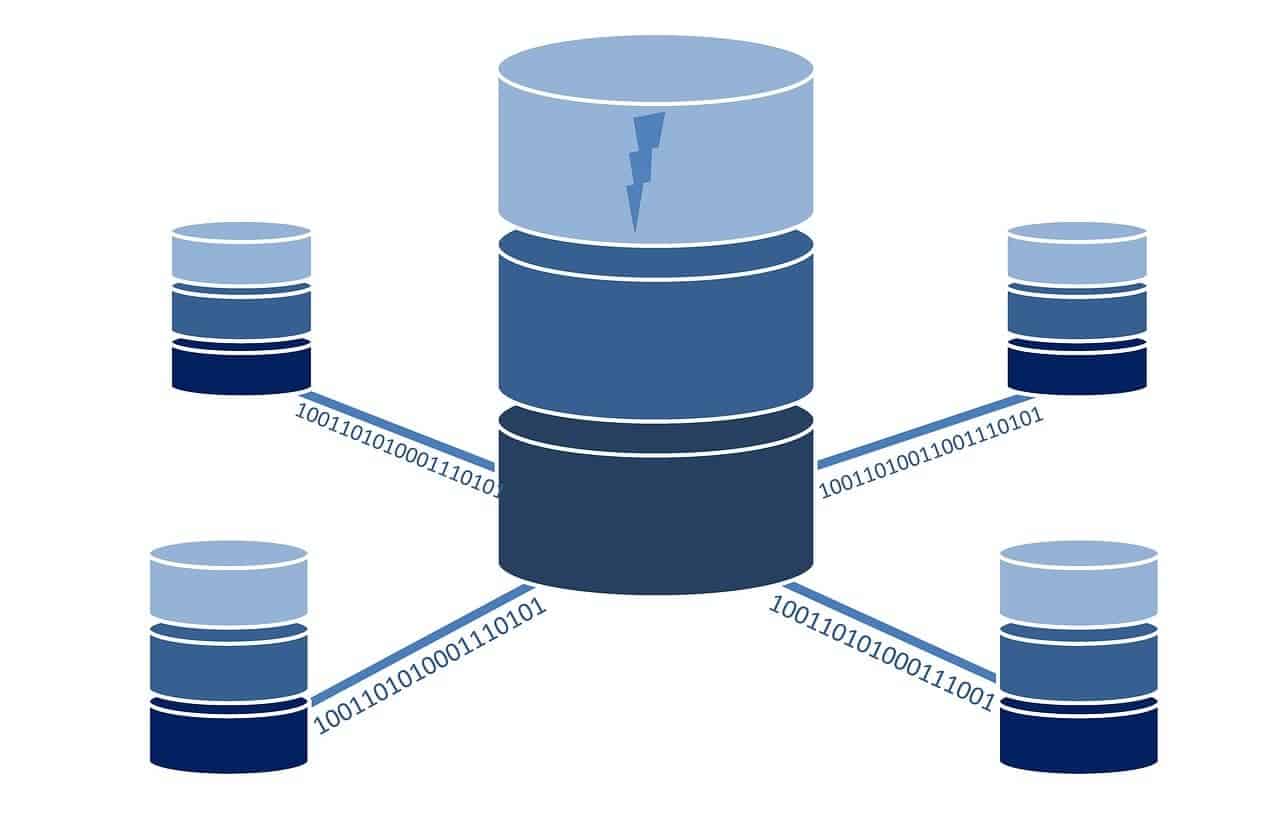Professional certifications are a valuable asset to any career. They show potential employers that one has the skills, knowledge, and experience necessary for success in their field. Comparing certifications is essential for those seeking an edge in the competitive job market. This article examines some of the most sought-after professional certifications available today and provides valuable information on how they compare.
The need for individuals to stand out from competitors in the job market has never been greater. Employers now demand higher proficiency levels than ever, making it vital to choose the proper certification accordingly. With so many options available, selecting a qualification that will give you a real advantage can be difficult. A successful comparison must consider cost, time commitment, recognition, and value within industry sectors.
This article provides readers with information to understand what each certification entails, earning them to make a more informed decision. When choosing their following qualification – ultimately giving them more control over their future career prospects and freedom to pursue their desired path.
Value Of Professional Certificate For Getting a Job:
The value of professional certificates has long been recognized as a way to increase employability. Today, these certifications have become invaluable in the job hunt and can often make or break an applicant’s success. Employers use them to gauge an individual’s knowledge and skillset, while potential employees rely on them to set themselves apart.
Many professional certificates are available, ranging from entry-level qualifications such as IT Certifications to more advanced ones like Chartered Financial Analyst (CFA) exams. In addition, some employers will require specific certifications for certain positions, such as Certified Public Accountants (CPAs). No matter what type of certificate is sought, having one can give applicants an edge over other candidates who may not possess credentials. Furthermore, depending on the industry and type of position being applied for, completing additional certifications may even lead to higher salaries or promotions.
Professional certificates offer multiple benefits for career seekers looking to stand out. With successful completion comes increased confidence in personal abilities, greater marketability when seeking employment opportunities, and a more substantial chance of securing a desired position with competitive pay. Ultimately, obtaining certification helps individuals take control of their future by providing essential tools needed for success in today’s ever-changing job market.
IT Certifications IBM, Microsoft, Cisco, Oracle:
IT certifications from leading technology companies, such as IBM, Microsoft, Cisco, and Oracle, are some of the most valuable credentials for job seekers today. These brands offer certificates covering various aspects of their respective fields, ranging from entry-level qualifications to more advanced topics like cloud computing or data analytics.
In addition to providing recognition and credibility in the IT field, these certifications can also be beneficial during the hiring process. Many employers use them to gauge an individual’s aptitude toward certain technologies, while others require specific qualifications for certain positions. Completing any of these prestigious certifications shows potential employers that an applicant is knowledgeable and experienced with the latest advancements in technology and software solutions. Furthermore, depending on the industry and type of position being applied for, having additional certifications may even lead to higher salaries or promotions.
Obtaining certification from any of these major tech companies helps individuals take control of their future by giving them essential tools for success in today’s competitive job market. With successful completion comes increased confidence in personal abilities, greater marketability when seeking employment opportunities, and a more substantial chance of securing a desired position with competitive pay.
Certified Information Systems Security Professional (CISSP):
As one of the most highly sought-after certifications, The Certified Information Systems Security Professional (CISSP) is an ideal choice for those looking to increase their value in the IT field. This certification requires individuals to demonstrate proficiencies in security architecture and design, asset security, communications, and network security, identity and access management, software development security, and more. It also provides a comprehensive understanding of risk analysis and mitigation strategies that can be applied when evaluating technical systems or networks.
The CISSP offers numerous benefits for job seekers seeking to climb higher within the IT industry. Today’s companies increasingly invest in cybersecurity due to the ever-evolving threats posed by hackers and malicious actors online. As a result, this credential makes applicants stand out from the competition while showing employers they have expertise in securing sensitive data and protecting digital assets. Additionally, it can lead to high-paying positions like Chief Security Officer or Director of Cybersecurity Operations, which may not be available before gaining this qualification.
This certification has become essential for many professionals looking to stay at the forefront of technology trends while safeguarding their company’s most valuable assets. Those who earn it often find themselves better equipped with the skills needed to excel within the competitive world of information technology while receiving recognition from peers, among other potential rewards.
Certified Ethical Hacker (CEH):
The Certified Ethical Hacker (CEH) is an increasingly popular certification among IT professionals looking to specialize in areas such as vulnerability testing and assessing system security. This credential provides a comprehensive understanding of the various techniques used by malicious actors online, giving individuals the skills needed to identify potential threats before they become severe problems. By earning this qualification, applicants can demonstrate their ability to anticipate risks, respond appropriately to cyberattacks, and improve overall network security for any organization or business.
This particular certificate also offers numerous advantages for job seekers seeking career advancement within the industry. As businesses struggle with increasingly sophisticated hackers, having CEH demonstrates knowledge of how best to protect against these dangerous actors while keeping sensitive data safe from theft or misuse. Additionally, it increases one’s value in the eyes of employers due to its rigorous curriculum, which requires mastery of topics like penetration testing, malware analysis, and cryptography.
Overall, possessing the CEH shows that an individual has taken the initiative to develop the technical know-how required for today’s ever-changing digital landscape. Companies that employ certified ethical hackers will benefit from better preparedness against cybercrime while increasing their workforce’s expertise and visibility within the field.
Certified Scrum Master (Csm):
The Certified Scrum Master (CSM) certification allows individuals to gain valuable skills and knowledge in Agile development. This certification demonstrates one’s proficiency in leading and managing agile projects and understanding the principles behind them. As more organizations turn towards agile methods for increased flexibility and speed, having this credential can help job seekers stand out from the competition while giving them an edge when applying for software engineering or product management roles.
Further advantages of obtaining CSM include gaining greater insight into managing complex tasks in an ever-changing environment. It also teaches problem-solving techniques that are essential for successful project completion. In addition, this qualification provides participants with the tools needed to resolve conflicts between team members quickly and efficiently, helping teams achieve goals faster without any roadblocks along the way.
Those who obtain their CSM will be fully equipped with best practices for developing organizational agility and maximizing productivity while maintaining control over deadlines and budgets during every stage of a project’s life cycle. With these abilities under their belt, certified scrum masters have become highly sought after by employers looking for employees who understand structure and adaptability – two key components necessary for success in today’s business world.
Certified Systems Engineer (CSE):
Obtaining a Certified Systems Engineer (CSE) certification is an excellent option for those seeking to gain systems engineering expertise. This comprehensive qualification provides individuals with skills essential for successful system design and implementation, from managing workloads to troubleshooting problems quickly and effectively.
The CSE training program offers detailed instruction on risk management, configuration control, software development life cycles, and quality assurance testing – all geared towards ensuring that products function smoothly at every stage of their production cycle. By learning these concepts, certified engineers can increase their productivity and ensure projects stay within budget constraints while meeting customer requirements efficiently. In addition, they will develop valuable problem-solving abilities, which enable them to identify issues early on and prevent potential disasters before they occur. With this knowledge, professionals who have completed the CSE curriculum will be well prepared to work in positions requiring advanced technical proficiency.
Overall, having a CSE credential demonstrates one’s commitment to staying up-to-date with the latest industry trends and technologies. As organizations continue to embrace digital transformation initiatives to remain competitive in today’s marketplace, having a qualified engineer equipped with modern tools is paramount for success. With this qualification, job seekers can confidently demonstrate their expertise and prove themselves invaluable assets when seeking system architecture or software engineering roles.
Comptia A+:
Another popular certification for IT professionals is CompTIA’s A+ credential. This qualification covers various topics related to computer hardware and software, such as troubleshooting common issues and configuring networks. Additionally, it provides an in-depth understanding of security protocols essential for protecting data from malicious attacks or unauthorized access. Individuals can demonstrate their proficiency and commitment to staying up-to-date with industry best practices by taking the necessary steps to obtain this certification.
Given its comprehensive scope and broad reach, having a CompTIA A+ certification opens many doors when looking for job opportunities in the information technology sector. Companies hiring certified engineers value their expertise and trust that they know to perform critical tasks competently. Furthermore, completing the training program also allows holders to develop strong problem-solving skills, enabling them to respond quickly and effectively if any significant issues arise. Obtaining this accreditation assures employers that certified personnel can be relied upon to ensure operational continuity within organizations.
In short, these two credentials provide significant advantages for those looking to break into the tech field or stay competitive in existing roles. While both certifications require intensive studying and practice, investing time and effort into achieving both will result in long-term career benefits and greater job satisfaction.
Business Certifications Pmp, Six Sigma, MBA:
Other than IT certifications, many business-oriented credentials can help individuals gain the knowledge and skills needed to excel in their current positions or advance in their careers. Professional certifications such as PMP (Project Management Professional), Six Sigma, and MBA have become increasingly popular among those looking to further their career prospects.
PMP is a certification program designed to provide professionals with the tools to manage projects efficiently and effectively. Those who acquire this accreditation demonstrate an understanding of project management principles and processes, enabling them to handle complex tasks more confidently. This qualification also gives holders an edge over other candidates when applying for managerial roles, as it demonstrates a commitment to excellence which employers highly value.
Similarly, the Six Sigma methodology provides insight into how successful businesses operate by focusing on improving customer service standards through data analysis and process optimization. The goal of obtaining this type of certification is to develop problem-solving capabilities that allow companies to reduce costs while simultaneously increasing quality levels across all operations. Meanwhile, MBAs focus on teaching students about financial planning, accounting practices, leadership qualities, marketing strategies, and organizational structures – making it one of the most comprehensive business qualifications available today.
Benefits Of Professional Certifications:
Professional certifications can provide a range of advantages to those who pursue them. Earning credentials such as PMP, Six Sigma, and MBA allow individuals to stand out from their peers in competitive job markets and demonstrate to employers that they possess the skills necessary for success. Higher salaries often accompany these certifications due to the increased value of knowledge and experience gained through accreditation programs.
Moreover, possessing an industry-recognized certification gives professionals greater confidence in their abilities and allows them access to exclusive networking opportunities within their respective fields.
Furthermore, professional certifications benefit career advancement; research has demonstrated that certified workers are more likely than non-certified employees to move up in their organizations or switch industries altogether. That is particularly true for IT professionals who need specialist qualifications to remain relevant in rapidly changing technological landscapes. Ultimately, obtaining one or more of these credentials means gaining valuable recognition and serving individuals well throughout their work.
Conclusion:
Professional certifications are an essential part of a job seeker’s portfolio. They provide potential employers with evidence that the applicant has acquired specific skills and knowledge related to their field. Certifications can also demonstrate commitment and dedication and serve as a benchmark for industry standards. As such, individuals must research which certifications offer them the most value in career advancement and salary increases.
From IT certifications like IBM, Microsoft, Cisco, and Oracle, Certified Information Systems Security Professional (CISSP) and Certified Ethical Hacker (CEH), to business certifications including Project Management Professional (PMP), Six Sigma, and Master of Business Administration (MBA), there are numerous professional certificates available depending on one’s particular interests or goals. Each certification offers its unique set of benefits that must weigh against other options before making an informed decision about what option best suits each individual’s current situation.
With so many valuable professional certificate options out there, it can seem daunting when trying to decide which one(s) could potentially unlock more opportunities for career growth. However, by researching all available information regarding each certification type, assessing personal resources/costs associated with obtaining the credential, and considering future goals carefully, You may find success in selecting the most beneficial certificate program(s).
Ultimately, combining technical knowledge from IT certifications and management expertise from business certifications will help ensure long-term employment prospects in any desired profession today.











